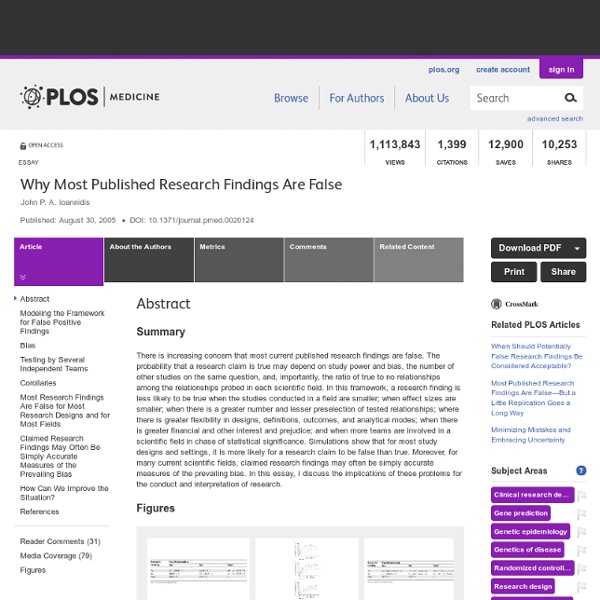Why Most Published Research Findings Are False

Why Steve Jobs Matters to You - Bill Taylor
by Bill Taylor | 10:31 AM August 30, 2011 Editor’s note: This post was written after Steve Jobs’ resignation in August; upon the news of his death, we think it’s worth another read. All sorts of commentators, on this site and elsewhere, are asking all sorts of questions about the resignation of Steve Jobs as CEO of Apple, Inc. What does it mean for the company’s future? What does it means for the stock price? All fine questions, to which I would add one more: What does it mean for you? Few of us have the chance to achieve 1/100th of what Steve Jobs has achieved. So if you want to use the end of Steve Jobs’s hands-on leadership at Apple to inspire a greater commitment to leadership by you, I’d suggest that you ask these five simple questions — questions that define what it means to be a high-impact leader today. 1. 2. 3. 4. 5. You don’t have to aspire to be the next Steve Jobs to learn some lessons from his one-of-a-kind career.
How Great Companies Think Differently
Idea in Brief Traditional theories of the firm are dominated by the notion of opposition between capital and labor, disconnecting business from society and posing conflicts between them. According to this view, companies are nothing more than money-generating machines. By contrast, great companies use a different operating logic. Great companies work to make money, but in their choices of how to do so, they consider whether they are building enduring institutions. There are six facets of institutional logic, which radically alters leadership and corporate behavior: a common purpose; a long-term view; emotional engagement; community building; innovation; and self-organization. Artwork: Sarah Morris, Midtown—HBO/Grace, 1999, Gloss household paint on canvas, 213.4 × 213.4 cm It’s time that beliefs and theories about business catch up with the way great companies operate and how they see their role in the world today.
Related:
Related:



